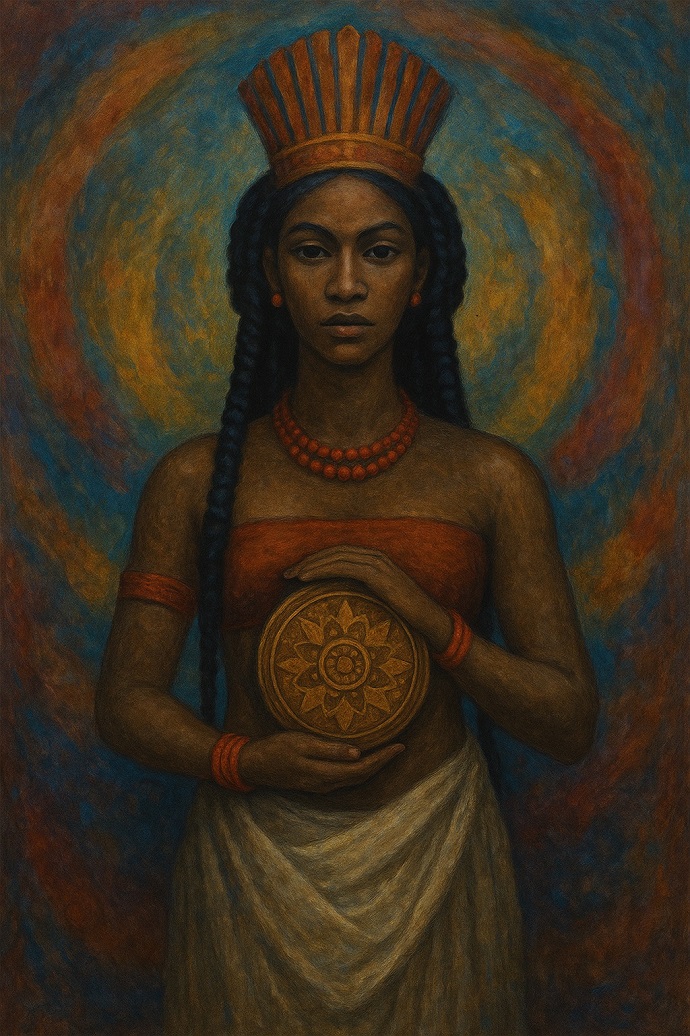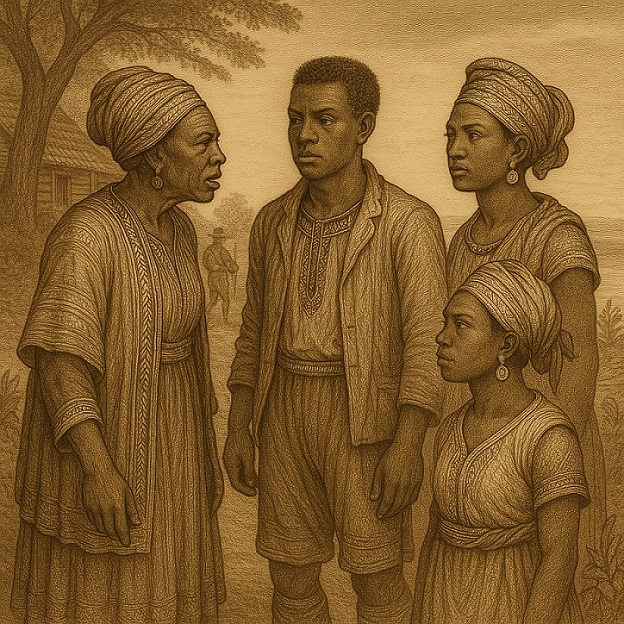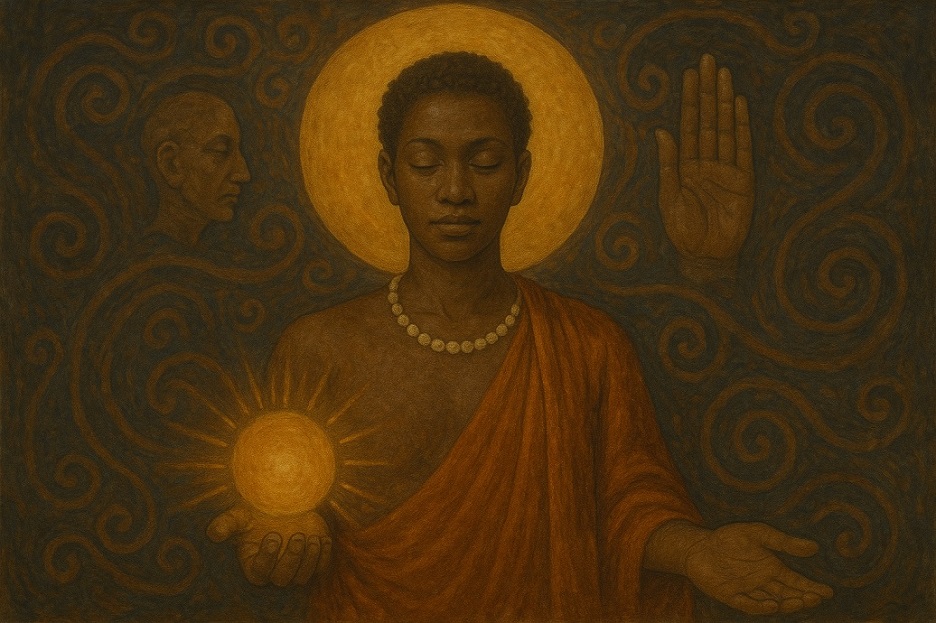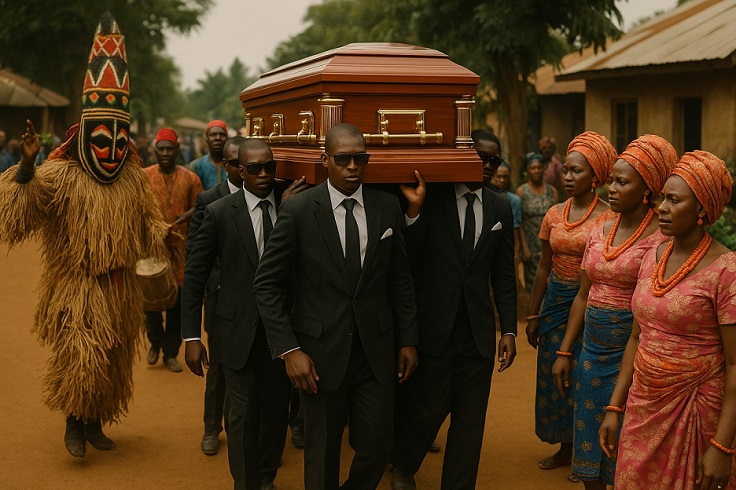
Why Igbo Funerals Are So Expensive
Bongo Music Africa
Author
Why Igbo Funerals Are So Expensive
Igbo funerals in Southeastern Nigeria are famous for being lavish celebrations as much as they are solemn farewells. In Igbo tradition, death isn’t just an end – it’s a transition to the world of ancestors. The ceremony is seen as a celebration of life that ensures the deceased’s smooth passage to the afterlife and affirms family legacy. As one traveler’s guide notes, the Igbo proverb says it’s “too expensive to die”. Families often spend months saving money for what is actually a two-part ritual: an initial burial soon after death, and a much grander “second burial” (Ikwa Ozu) held weeks or even years later. During all these events, community members feast, dance, and make offerings to honor the departed. In fact, an Igbo priest explains that “the goal of life is to become an ancestor after death”, so families spare no effort in giving a beloved elder a respectful, even magnificent, farewell.
The undertakers carry a coffin amid music and celebration – a common sight at Igbo funerals. These events involve feasting, dancing, and thanksgiving to the ancestors, making the funeral feel more like a family festival than a private wake. Many Igbo believe a grand funeral helps “establish the deceased’s status in the ancestral realm”, so every detail – from the casket to the cloth colors and the music – is given attention. In one example, the eldest daughter (Ada) will sometimes eat her father’s favorite foods in complete silence for a full day after the burial, a ritual meant to “ensure that her father has constant access to nutrition in the afterlife”. These customs show how funerals are about more than sorrow: they reinforce family ties and cultural identity across generations.
Cultural Significance
For the Igbo, funerals are deeply symbolic rites connecting the living and the dead. Traditions emphasize that death is not a final severance but a passage into a new world. In this view, the ceremony initiates the deceased into the community of ancestors. Only those who receive a proper send-off can “join the realm of the ancestors” with honor; others are said to wander as restless spirits. This belief strongly motivates families to perform every required ritual, no matter the cost. As scholars of Igbo culture explain, honoring the dead ensures the ancestors watch over and bless the living. One blogger puts it simply: a well-buried ancestor “watches over [their] descendants” and even may return in a future newborn, while an improper burial brings misfortune to the family.
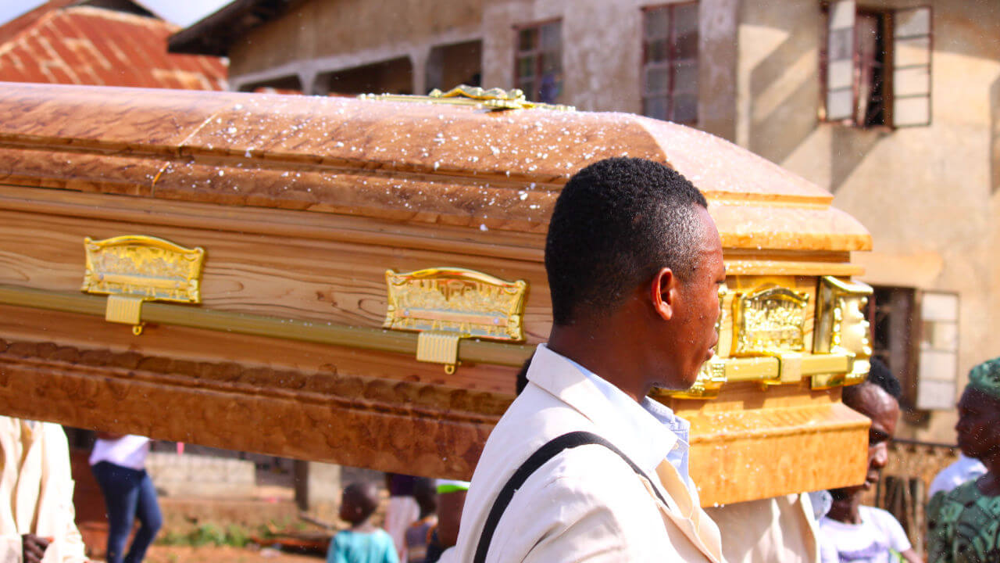
Thus, every aspect of an Igbo funeral carries meaning. The elaborate two-stage burial – an initial interment and a later “celebration of the dead” (Ikwa Ozu) – reflects this worldview. Families believe that without the second ceremony, the spirit cannot be fully at rest. Even the timing is important: burials often take place on weekdays (usually Friday in the Catholic tradition) to give time for careful preparation. The goal is to create a joyful, communal atmosphere that honors the deceased’s life. As one account says, funerals “are huge… extravagant—and highly ritualized events”. In short, Igbo funerals are meant to celebrate the person’s legacy, reassure ancestors that the family is dutiful, and set the spirit on the right path beyond.
Social Status and Prestige
In Igbo society, the scale of a funeral often signals the family’s social standing. A more elaborate funeral implies that the deceased (or their family) was wealthy or highly respected. This creates pressure to “go big” even when resources are limited. One news article bluntly observes that lavish funerals have become a status symbol – families invest in obsequious pageantry to show off wealth and honor. Titled elders (those who hold traditional ranks or who lived to old age) typically warrant longer, more expensive rites. For example, a community website notes that a titled man’s burial might span seven to fourteen days with numerous ceremonies, while an ordinary person’s burial might only take a few days. In some communities, the rites can involve dozens of cows: at one prominent funeral, the family slaughtered fifteen cows simply because they could afford it.
This competition for prestige can strain families. To many, it’s not enough to quietly honor the dead – a “deserving” burial now involves printed posters, matching party outfits (aso ebi), live bands or DJs, choreographed dances, and even professional pallbearers. Critics note that people who barely have money for necessities are nevertheless “stretching themselves thin to cater to hundreds” at burials. The mentality is summed up by one Igbo elder who said funerals used to be more humble: “my father died in 1963… he was not old enough to be buried with a cow, so he was buried with seven dogs. In those days, death was celebrated more culturally than with the elaborate burials we have today”. He adds that today “pride, ego and unhealthy competition” make people feel compelled to outdo each other at funerals.
Even among grieving families, this pressure is clear. As a Vanguard report notes, community leaders might say nobody is forced to have an expensive burial – but many still insist on it as a mark of respect and honor. If a family fails to meet expectations, they can face social scorn. One woman recalled how her brothers had to buy a goat and six yards of cloth for each child just to satisfy their mother’s kin; she says, “It was a terrible experience”. In this way, funerals become more than mourning: they are also opportunities for families to project prestige and maintain their place in the social hierarchy.
Community and Kinship Obligations
Igbo culture is highly communal, so a funeral inevitably involves a wide network of relatives, friends, and associations. The bereaved family must navigate the expectations of clans, age grades, men’s groups, women’s societies, church congregations, and other social organizations – each with its own custom for contributions. In some towns, an aunt’s group (Umuada) or the age-grade (Umuanna) will submit a list of demanded items: livestock, money, food, cloth, or other gifts that the family must provide. If the family omits even one item, that group might stay away or formally complain. As Vanguard journalists explain, these “various demands” from cultural and church bodies are the main reason Igbo burials remain so costly.
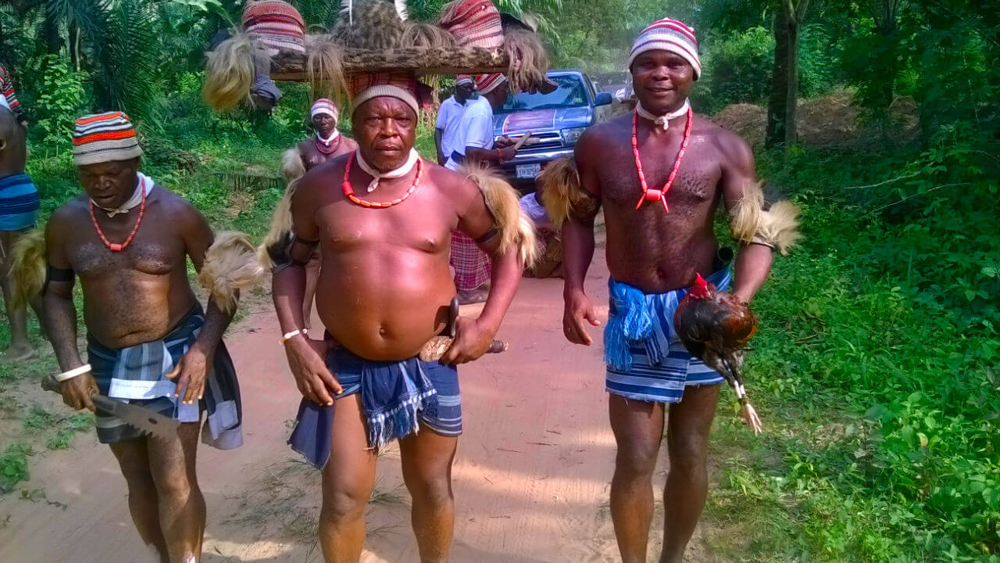
The ripple effects are huge. One woman, Mrs. Grace, described how after her 90-year-old mother died, distant relatives suddenly “started behaving as if my mother committed an offense” and made endless demands. They required a goat to be sacrificed, a life-sized cow for the village, and said each of the seven surviving children must present another goat and six yards of wrapper cloth. For days, women of her mother’s village lingered in their home, expecting food and drink at any hour. Her brothers told Vanguard that “we spent so much” on these requirements. Many families in her town end up borrowing or even selling land to meet the lists of kinsmen.
These demands also come from more formal organizations. Churches in the region often have a “burial levy” or dues. One Catholic parishioner told Vanguard that if a member hasn’t kept up payments, the church may refuse to help bury them. She pointed out that this practice forces poorer families to borrow money just to pay their dues while burying a loved one. Similarly, social clubs and age-grade associations expect fees. For instance, men’s clubs sometimes collect levies that cover members’ funerals, meaning an individual’s death triggers mandatory contributions from all peers. The result is a tangled web of obligations: contributions made at others’ funerals create expectations that must be returned in kind, keeping expenses high.
Throughout this process, the family straddles give-and-take in the community. They entertain neighbors at elaborate meals, knowing that in the future those same people will expect them to give when the tables are turned. In theory this reciprocity keeps social bonds strong, but in practice it piles on the cost. As one commentator put it, when a family is asked, “Is it the loss or the ‘other one’ making you cry like this?,” the “other one” is clearly the financial burden of the funeral.
Traditional Rites and Ceremonies
Igbo funerals unfold in stages and ceremonies, blending solemn rites with festive elements. The first is usually a quick interment (izù ọ́lụka), held days or weeks after death. After that comes the grand “second burial” (Ikwa Ozu), which is often the costlier affair. These gatherings include many rituals:
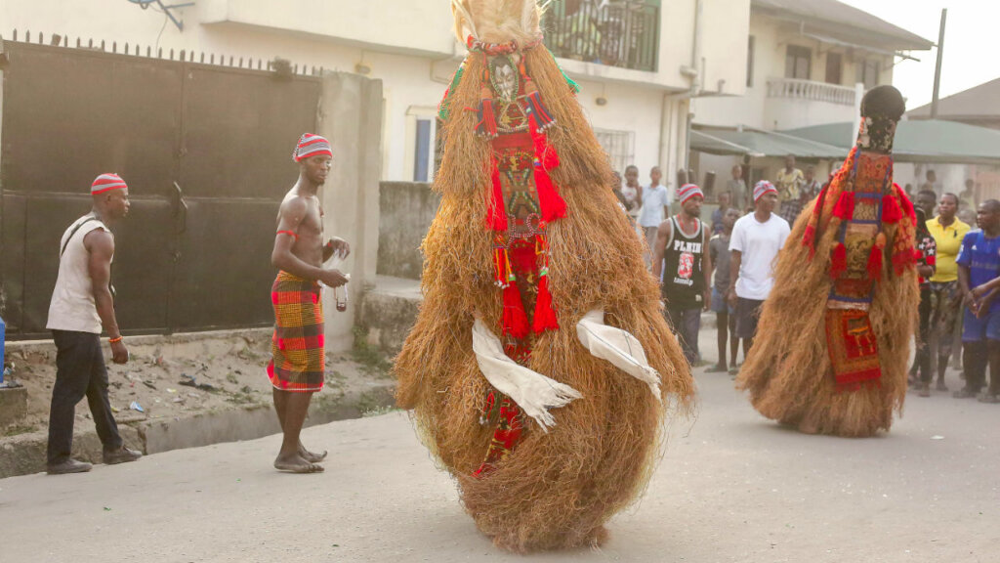
- Masquerades (Mmanwu): Men dressed in elaborate straw and cloth costumes dance to drums, believed to channel ancestral spirits. For example, at some funerals a traditional “Ohafia war dance” features men in full warrior regalia – even carrying live roosters or spears – as part of the procession.
- Kola nut ceremonies and libations: Elders formally announce the death (offering kola and palm wine) to kin and age-grade peers, each meeting requiring gifts. Wives and daughters may perform rituals like the Ino Unu Akwa, where an eldest daughter silently eats the favorite foods of her late father to nourish him in the spirit world. These rites can last hours or even days.
- Feasting and Aso Ebi: No Igbo funeral is complete without a communal feast. Guests wear coordinated fabrics (aso ebi) to show support, and thousands may be fed. As one cultural account notes, “most of the expense incurred during a funeral ceremony goes towards feeding the community”. There are often multiple banquet sessions – a church service with food, a night-vigil meal, and then a big party after burial.
- Music, dancing, and entertainment: Traditional drummers, gospel singers, and modern bands all appear. It is common to have caroling singers at church, followed by highlife or Igbo folk musicians playing at the reception. Professional DJs or live orchestras are increasingly hired. In many places, the atmosphere is almost carnival-like: one article even called these bereavements “extravagant burials… that prioritize showmanship over genuine mourning”.
For instance, Mmanwu masquerades are a familiar sight at Igbo funerals. Dancers in grass-and-cloth costumes fill the street (as in the photo above) to symbolize ancestral presence. Communities may also hold mock rituals such as a “trial” to appease spirits, ensuring no one was responsible for the death. These performances give a public celebration and remind participants of the deceased’s role in the community. Such pageantry can make the funeral feel like a festive homecoming: an entire village comes together to honor the person’s life.
Traditional dances often include warrior or community dances, underscoring heritage. In this photo, local men carry fowl and musical instruments in a funeral procession (a typical Ohafia warrior dance). Imagine dozens of people in similar regalia marching through town – it’s a spectacle that takes money for costumes, food for the performers, and time to organize. One writer described these events as carnival-like: after the burial, days of dancing and feasting follow. In fact, modern Igbo funerals sometimes borrow global elements: families may rent carnival floats, hire professional dancers (the now-famous “dancing pallbearers”), or even advertise the event with colorful posters and jingles. All of these traditions – though joyful – add to the mounting costs.
Modern Influences and Rising Costs
Over the last few decades, modernization and social competition have driven Igbo funeral costs even higher. Exposure to global media and local affluence means newer generations often expect more flamboyant ceremonies. Traditional leaders lament that people now “borrow culture” – mixing in displays of wealth that our grandparents never imagined. For example, it was once unusual for villagers to print full-page newspaper announcements or billboards for a funeral; today that can be almost routine. Families hire caterers, cover dance floors, or even rent luxury cars and branded tents.
The effect is a kind of arms race. One Igbo chief notes that when the grandfather of a famous Nigerian footballer died, his family slaughtered 15 cows for the funeral – a number not dictated by custom but simply because “they had the money” and wanted to outshine others. Writing in 2024, one observer lamented that average people are pressured into funerals with “elaborate decorations, live music, and extravagant buffets”, even if they could barely afford basic needs. People say things like, “If you know you don’t have money, don’t die – nowadays marrying is cheaper than burying your loved one.”.
Even with inflationary pressure, the scale rarely shrinks. In fact, several states have attempted to cap funeral excesses: for example, a bishop and governor in Anambra State passed laws forbidding printing brochures and multi-day feasts to rein in spending. But these rules are hard to enforce when social expectations are so strong. Thus, modernization and peer pressure keep pushing costs upward – making each generation’s funeral the “new normal” at a higher price point than the last.
Church Levies and Community Contributions
Beyond cultural rites, many families face additional levies and fees that must be paid before a funeral ceremony. Churches and social clubs often require members to be financially “up to date” before they will participate in the burial. For instance, it has been reported that in some Igbo Catholic parishes, believers insist on collecting unpaid dues or “burial levies” from a deceased person’s family before allowing the church to hold the funeral mass. If the family cannot pay these arrears, they may have to find an alternate clergy (as one family did when the deceased was in default).
Similarly, women’s groups, choir associations, and men’s clubs usually operate benevolent funds: each member contributes regularly into a pool that is then used to support the funerals of members. In theory, this is a form of self-insurance – but it also means that funerals become group events where contributions are tallied. One commentary noted that some Igbo women, knowing the strain on poorer members, reluctantly “punish the poor” by insisting that all levies be paid in cash before the burial. Critics argue this defeats the purpose of charity, driving families to take loans just to meet these community contributions.
In short, alongside all the traditional gifts (goats, kola, robes), families must often make formal payments to various associations and their church. These costs can seem arbitrary or unfair to outside observers: “the faithful who are bent on collecting [burial dues] even when a priest kicks against it,” one priest complained. This push-and-pull of give-and-take – you support others when they lose a loved one, they support you later – helps maintain solidarity but also substantially adds to funeral budgets in Igbo communities.
Diaspora and Overseas Remittances
Today many Igbo families have members living abroad – in Europe, America, or elsewhere in Africa. These diaspora ties greatly affect funerals. Most Igbo still insist the deceased be buried in their ancestral village or husband’s village, so relatives abroad usually fly home or send the body back. It is often said that the Igbo frown on burying their dead outside their community. That means the children or siblings abroad must sometimes hastily book flights and pay to repatriate the body.
On the positive side, remittances from abroad often provide crucial funds for funerals. Many families working in the U.S. or U.K. feel a duty to contribute money and luxury items. For example, one young man in medical school recounted raising nearly ₦2 million with help from uncles and friends to pay for his father’s elaborate rites in their village. Another described how he and his cousins pooled cash from abroad to buy the required cows and goats. In this way, having relatives overseas can ease the burden – but it also raises expectations. Wealthy migrants sometimes face pressure to outdo local standards.
Not everyone embraces these traditions. Some diasporans lament the expense. One Igbo woman wrote that although she is proud of her heritage, she decided she will be “buried where my own children live… to create a sense of continuity and connection that transcends generations and geography”. In other words, she prefers sparing future generations the cost of flying home by having a simpler service abroad. Still, even families with no residence overseas will often ask distant relatives to contribute funds: it’s expected that those who have succeeded abroad will “do the right thing” for elder parents, in foreign currency.
Overall, global migration means funerals have gained an international dimension. Churches now sometimes live-stream services to include those who cannot travel, and community WhatsApp groups buzz with donation requests when someone dies. Diaspora Igbo play a big role in keeping these customs alive – they bring fresh money and ideas to them – but also sometimes question or adapt the traditions to new realities.
Conclusion
Igbo funerals remain a profound blend of culture, community, and obligation. On one hand, the money and effort poured into them reflect deep values: honoring ancestors, celebrating a life, and reaffirming family ties. On the other hand, these expectations can leave bereaved families in debt and feeling trapped by custom. As one observer asked, should our ancestors’ traditions dictate our grief, or should we shape them to show love without causing hardship?
In recent years, even Igbo leaders and clergy have begun calling for moderation – suggesting limits on expensive extras and urging that true respect need not mean ruinous spending. Some young people also embrace change: the rise of online memorials and mixing traditional rites with simpler church services shows that funerals are evolving. But for now, the careful observer will find that funerals in Igboland remain “extravagant… celebrations of life,” a rich tapestry of ritual that mirrors the community’s priorities and pressures. Whether praised or criticized, these grand farewells tell us something important about Igbo society: a family’s willingness to spend on a funeral speaks to its love for ancestors, its sense of honor, and its place in the village – for better or worse, it’s a reflection of the living as much as a tribute to the dead.
Sources: Eyewitness accounts, news reports, and cultural studies of Igbo tradition (e.g. Legit.ng; Vanguard News; Neusroom interviews; cultural blogs and academic articles). All cited above.

